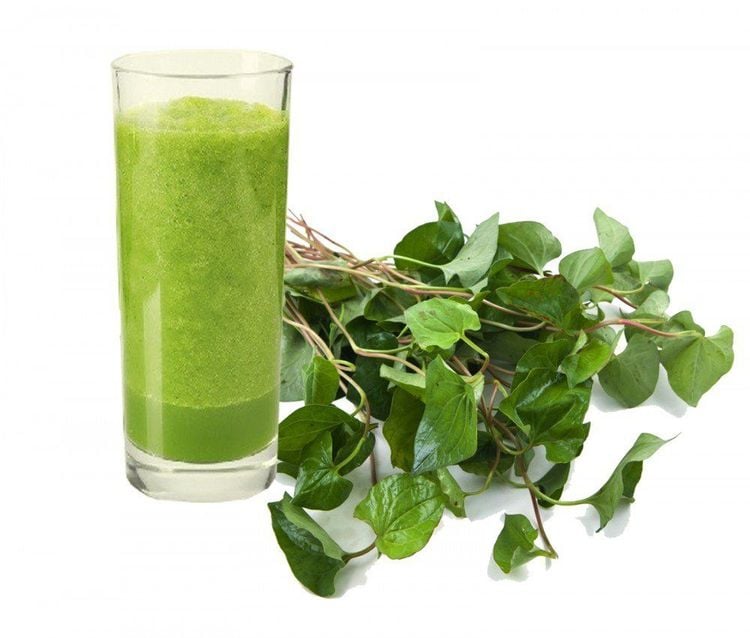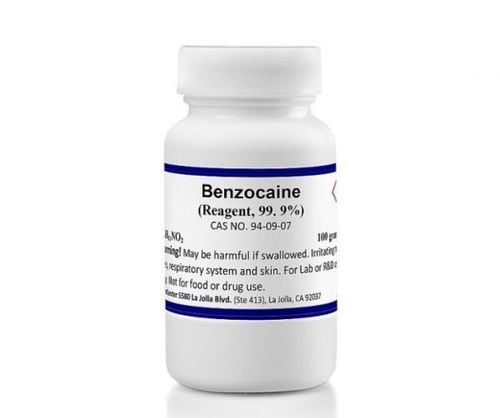This is an automatically translated article.
Lettuce is a familiar food to Vietnamese people and is a precious medicine with many benefits. Lettuce has a spicy, sour taste, a fishy smell, a cool property, and many beneficial nutrients, so they are used in the treatment of a number of diseases. So how should we use lettuce to achieve optimal results?
1. Some general information about fish lettuce
Lettuce is native to different parts of Asia, including China and Vietnam. Got its botanical name from the name Houttuyn, after the Dutch naturalist Martin Houttuyn. The cordata part of the name comes from the Latin word for heart. The first Westerner to describe Houttuynia cordata was the Swedish naturalist Carl Peter Thunberg, who wrote about lettuce in his 1784 book Flora Japonica. In addition, lettuce is also known according to the region, which is a fish plant, or a fish plant.
Other names for this herb include Vietnamese lettuce, Chinese zhe ergen, and English fish mint. Common English names include weed plant, heart tree, chameleon plant. In Japan, the name of the lettuce is the herb that blocks poison.
In most places, lettuce is more commonly grown wild than cultivated. The flavor of lettuce is an unusual taste for a herb, with a fishy character, which explains the name fish mint. The fishy taste lacks appeal to humans compared to sweeter herbs, which is why Houttuynia cordata is not as popular as basil and other herbs. Even in places like Sichuan, the fishy smell makes it a controversial herb. The roots are also edible and may taste similar to galangal but minus the heat.
2. Nutritional composition of lettuce
Lettuce contains many nutrients and medicinal herbs that promote health. The nutritional ingredients of lettuce include:
Alkaloids Alpha-Pinene Calcium Decanal Dodecanal Flavonoid Glycoside Hyperin Isoquercetin Lauric Acid Limonene Magnesium Methyl Decanoate Myrcene Potassium Pyridine Quercetin Rutin Volatile Oil

Diếp cá là loại thực phẩm có chứa nhiều chất dinh dưỡng
3. Benefits of Lettuce
Unique and diverse combinations of nutrients give the plant a variety of medicinal properties, here are a few prominent uses.
3.1. Immune system support A few recent studies have shown that Houttuynia cordata can stimulate the production of lymphocytes, important cells to help boost immunity to keep the body healthy. Researchers believe that eating lettuce can improve the resistance of people of different ages.
3.2. Treatment of Chronic Sinusitis The medicine extracted from the plant can cure chronic sinusitis and nasal polyps.
3.3. Kills Herpes Virus Lettuce has an immediate inhibitory effect against herpes pseudorabies virus.
3.4. Treating Allergies Lettuce contains flavonoids, including quercetin and isoquercitrin. Has the effect of reducing the release of histamine, so it is effective for allergies.
3.5. Treatment of diabetes In the composition of lettuce fish contains ethanol, which is effective for diabetes. According to the results of a recent study, it has been shown that drinking lettuce juice for a week can significantly reduce fasting blood glucose levels (FPG levels).

Rau diếp cá có thể hỗ trợ điều trị bệnh tiểu đường
3.6. Weight control According to research, lettuce has anti-obesity properties, so it has the ability to reduce excess body fat. So if you eat lettuce or drink lettuce juice regularly can help control weight.
3.7. Diuretic The leaves of the lettuce plant are rich in potassium salts. Salt causes the body to excrete sodium which makes this herb an effective diuretic.
3.8. Effective anti-inflammatory effect Lettuce contains flavonoids such as rutin and quercetin. The flavonoids are responsible for the anti-inflammatory properties of the plant.
3.9. Treatment of Respiratory Infections Lettuce is used in Traditional Chinese Medicine as a treatment for bronchitis and similar ailments like pneumonia and other lung disorders.
3.10. Detoxify the body Due to the diuretic ability of lettuce leaves, it also has another effect that helps the body eliminate toxins, purify the body, eliminate toxins or dead cells from the body through sugar. urine.
3.11. Antibacterial effect In lettuce contains decanoyl - acetaldehyde which has antibiotic properties with antibacterial effects such as inhibiting staphylococcus aureus, streptococcus, pneumococcus, diphtheria bacilli, e.coli... In addition, Lettuce also has the effect of killing parasites and fungi.

Trong rau diếp cá có chứa chất decanoyl có tác dụng kháng khuẩn
4. Uses of lettuce according to Oriental medicine
According to oriental medicine, lettuce has the effect of dissipating heat, used to treat cancer, hemorrhoids, sores. In addition, the processed lettuce essential oil has strong anti-inflammatory and antibacterial effects. Especially when combined with magnesium, lettuce has a laxative effect. There are a number of products that treat hemorrhoids that contain lettuce.
Once you know about the nutritional composition of lettuce, you can consider using it for each purpose to bring the best health benefits. Although there are many health benefits, we should not overdo it and only use a moderate amount.
In case you want to eat lettuce every day, you should consult a doctor, a nutritionist for advice and give a suitable dosage for your current health status.
Please dial HOTLINE for more information or register for an appointment HERE. Download MyVinmec app to make appointments faster and to manage your bookings easily.













